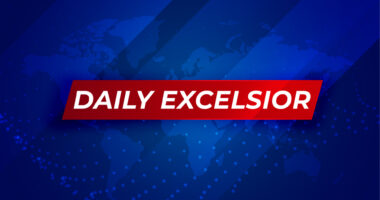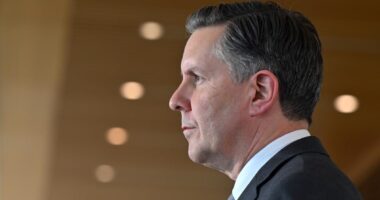The Heritage Foundation and center-right groups are working together to ensure a potential Trump presidency will implement socially and fiscally conservative policies. But liberal groups and commentators fear these transition plans are a threat to democracy.
Project 2025, according to its description, “paves the way for an effective conservative Administration based on four pillars: a policy agenda, Presidential Personnel Database, Presidential Administration Academy, and playbook for the first 180 days of the next Administration.” Goals include preventing the State Department from pushing a leftist agenda. The United States should not “impose radical abortion and pro-LGBT initiatives” abroad, according to one recommendation. Aid to Latin America should promote “labor and pension reforms, lower taxes, and deregulation in order to increase trade and investment within the region and with the United States as the genuine path to economic and political stability.” Project 2025 also recommends restoring biological reality to federal regulations and not pushing an LGBT agenda. But fiscal and conservative policies proposed by Project 2025 “would in fact overhaul U.S. democracy and affect nearly everything from abortion rights to health care access to overtime pay and education,” according to the Center for American Progress.
Rep. Ted Lieu (D-CA) said Project 2025 “is a radical, extreme, pro-authoritarianism plan” and “attacks our nation’s founding principles, such as our system of checks and balances, freedom of speech and of the press, and separation of church and state.” He helped form a congressional “task force” to fight against Project 2025 and “serve as a central hub for pro-democracy Members of Congress, civil society, and affected communities to coordinate on examining, highlighting, preempting, and counteracting this rightwing plot to undermine democracy.” It is not a threat to the Constitution and checks and balances when conservatives advocate for their ideas. Lieu and others do have a role in supporting democracy: They can introduce legislation, they can vote down bills pushing ideas they do not like, and they hold the purse strings. However, if abortion restrictions get passed, the federal government restores the historical definition of sex and gender, and foreign aid is predicated on financial reforms, democracy will not suffer.
University of Pennsylvania Professor Anthea Butler disagrees. She said that tying foreign aid to pro-life policies, as Project 2025 proposes, is an example of “Christian nationalism” spreading “around the world.” MSNBC host Ali Veshi, who was interviewing Butler, compared it to “colonialism.” The foreign aid issue is a microcosm of the broader debate around Project 2025: Is it okay to use the levers of government to push certain policies? In general, yes. President Barack Obama’s administration also tied foreign aid to countries agreeing with its stance on abortion. What made Obama’s use of foreign aid wrong is that it pushed a bad policy: in this case, support for abortion. But tying foreign aid to the protection of human life is a good policy. Most people are likely fine with foreign aid dollars having other strings attached to them, such as a promise to crack down on sex trafficking or child labor. Neither is it colonialism to provide a certain type of aid for a certain purpose. For example, it is not colonialism if Congress allocates Ukrainian aid to be used specifically for food or weapons for the country to defend itself against Russia. That is just politics, and it’s part of our democracy.
Matt Lamb is a contributor to the Washington Examiner’s Beltway Confidential blog. He is an associate editor for the College Fix, which recently received a grant from the Heritage Foundation for an unrelated project.





